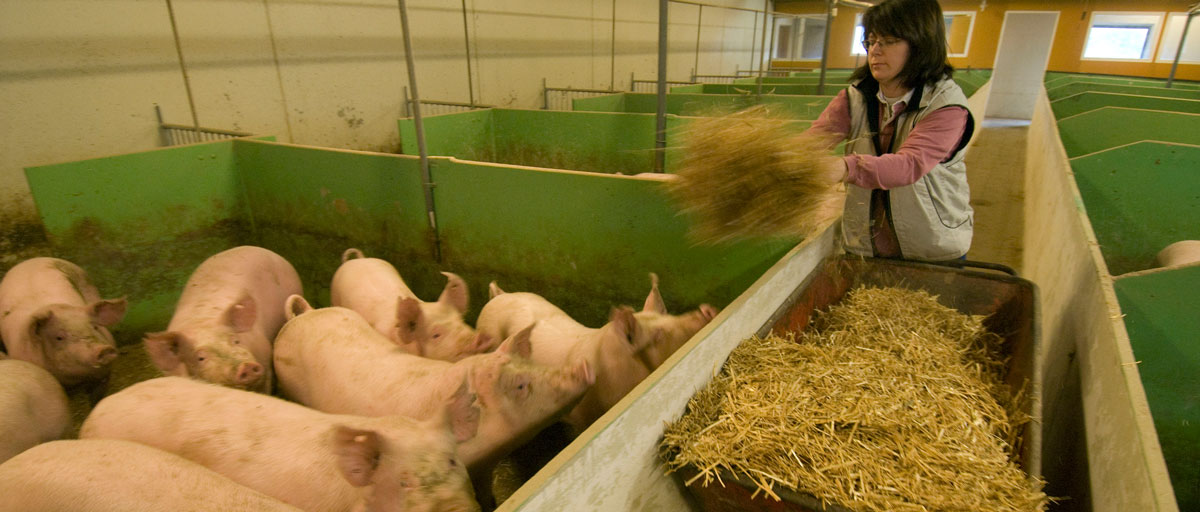Bildtext får vara max två rader text. Hela texten ska högerjusteras om den bara ska innehålla fotobyline! Photo: B. Christensen/Azote
ANTIBIOTICS
Gambling with antibiotics and pesticides
First assessment of planetary boundaries for antibiotic and pesticide resistance shows several are already crossed
- Researchers suggest that if resistance to antibiotics and pesticides goes beyond certain planetary boundaries, societies risk large-scale health and agricultural crises
- Without new approaches, in the future going in to the hospital will become a gamble
- New strategies are needed that promote the growth of bacteria and pests that are susceptible to pesticides and antibiotics, at the expense of those with resistance
Resistance to antibiotics and pesticides is rising at alarming rates. Yet, currently there is no global framework to track the threat to human health and crops.
Researchers have now published the first estimates of antibiotic and pesticide “planetary boundaries” in the journal Nature Sustainability. The researchers suggest that if resistance to antibiotics and pesticides goes beyond these boundaries, societies risk large-scale health and agricultural crises.
The new research concludes that Gram-negative bacteria, a group of bacteria that includes well-known pathogens such as Salmonella, Klebsiella pneumoniae, and E. coli, are already beyond the “planetary boundary”, as some strains of several species are already resistant to all or most antibiotics tested.
“It appears as if we have crossed a tipping point for Gram-negative bacteria, with doctors increasingly reporting untreatable infections. We now need to manage these ‘nightmare bacteria’ differently,” says lead author Peter Søgaard Jørgensen from the Global Economic Dynamics and the Biosphere programme at the Royal Swedish Academy of Sciences and Stockholm Resilience Centre.
Without new approaches, in the future going in to the hospital will become a gamble. More patients will get unlucky, and become infected with untreatable or hard to treat bacteria. This is an urgent risk to human society.
Peter Søgaard Jørgensen, lead author
Better weed programmes needed
In addition to antibiotic resistance, another urgent concern is resistance to glyphosate (the core ingredient in the herbicide Roundup) and insecticidal Bt-toxins in transgenic crops, which are now widespread.
The researchers’ assessment suggests that some herbicides and Bt toxins have already reached regional boundaries with some farming areas reporting large-scale resistance to these pesticides.
“A benefit of crops resistant to glyphosate is that they help farmers control weeds already resistant to other herbicides,” says Yves Carrière, an author on the study from the University of Arizona. “But rapid and widespread evolution of resistance to glyphosate in many weeds has sometimes left few effective herbicides for the control of weeds with multiple resistance.”
“Without better weed management programmes it is just a matter of time before this herbicide planetary boundary is also transgressed,” adds Carrière.

How we crossed planetary boundaries for antibiotic and pesticide resistance.
Reversing spread of resistance unlikely
The historical evidence suggests that reversing the spread of resistance is unlikely explains Søgaard Jørgensen.
“Once resistance becomes established, it is unlikely to completely disappear again.” In addition, increasing efforts to fully eradicate bacteria and pests is likely to make matters worse. Instead, new strategies are needed that promote the growth of bacteria and pests that are susceptible to pesticides and antibiotics, at the expense of those with resistance.
“Susceptible insects, plants and bacteria provide a benefit to society, promoting them can be part of a new and broader strategy of chemical de-escalation for the 21st century,” says Søgaard Jørgensen. These new strategies need to promote the importance of sustaining susceptibility to pesticides and antibiotics and account for the many other services that microbes, plants and insects provide to us through e.g. pollination, biological control, and benefits to human health.
“These strategies are urgently needed as complements to development of new antibiotics and pesticides. Together they have the potential to bring us back inside the boundaries to a zone of lower risk”, says Søgaard Jørgensen.
Living with Resistance project. 2018. Antibiotic and pesticide susceptibility and the Anthropocene operating space, Nature Sustainability, doi: 10.1038/s41893-018-0164-3










